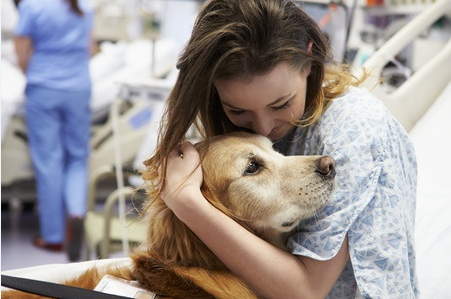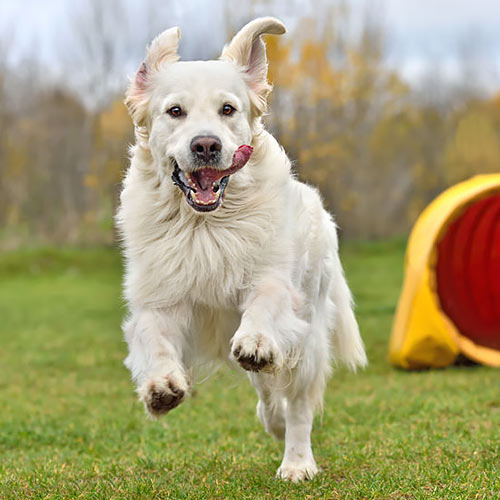 Everyone knows that an encounter with a friendly pet can change someone’s mood instantly. That’s why many pet owners lately have been taking steps to have their well-behaved and loving dog trained as a therapy pet.
Everyone knows that an encounter with a friendly pet can change someone’s mood instantly. That’s why many pet owners lately have been taking steps to have their well-behaved and loving dog trained as a therapy pet.
Therapy dogs are different than service animals, like those that watch epilepsy patients for signs of seizure or help guide the blind. Therapy dogs, instead, spend time with patients in hospitals or rehab facilities to lift their spirits.
Studies have shown that successful therapy dogs have not only improved the disposition of patients in the hospital, but have also decreased pain and blood pressure, and reduced anxiety. A therapy dog can also positively affect the hospital staff on a particularly stressful day. Who doesn’t love to take a few minutes to pet an adorable puppy?
For your dog trained to be a therapy dog, you’ll need to do a few things, says The New York Times in a recent article. First, your dog must be completely housebroken and cannot be afraid of new people and experiences. He or she must be able to obey simple commands with ease, and your dog must have a happy disposition and attitude, which makes him or her uniquely qualified to be a therapy dog. Therapy dogs cannot be jumpy, nippy or aggressive, as overly rambunctious dogs can accidentally hurt sick or injured individuals or bump into IV lines or other pieces of medical equipment.
If your pet meets these requirements, you can contact your local medical facility to begin the process. Most places, like hospitals and rehab facilities, will require you to provide documentation of annual vaccines and check-ups at the vet. You, as the owner, may even be required to present your own documentation of vaccinations and pass a drug test.
Owners who have trained their dogs to become therapy dogs have reported that it’s totally worth it. It’s not quite a doctorate, and your dog may not have a medical background or fetch a great paycheck for you, but your dog’s simple presence can go a long way towards improving the mood of a sick patient and help them to heal faster.
At Dog Trainer College, we work to help people interested in becoming professional dog trainers through our series of specialized courses. From police work to therapy, protection canines to simple obedience training, students graduate from our courses fully prepared for a career in dog training. To learn more or to find out our upcoming course schedule, call us today at 812-650-2394.

